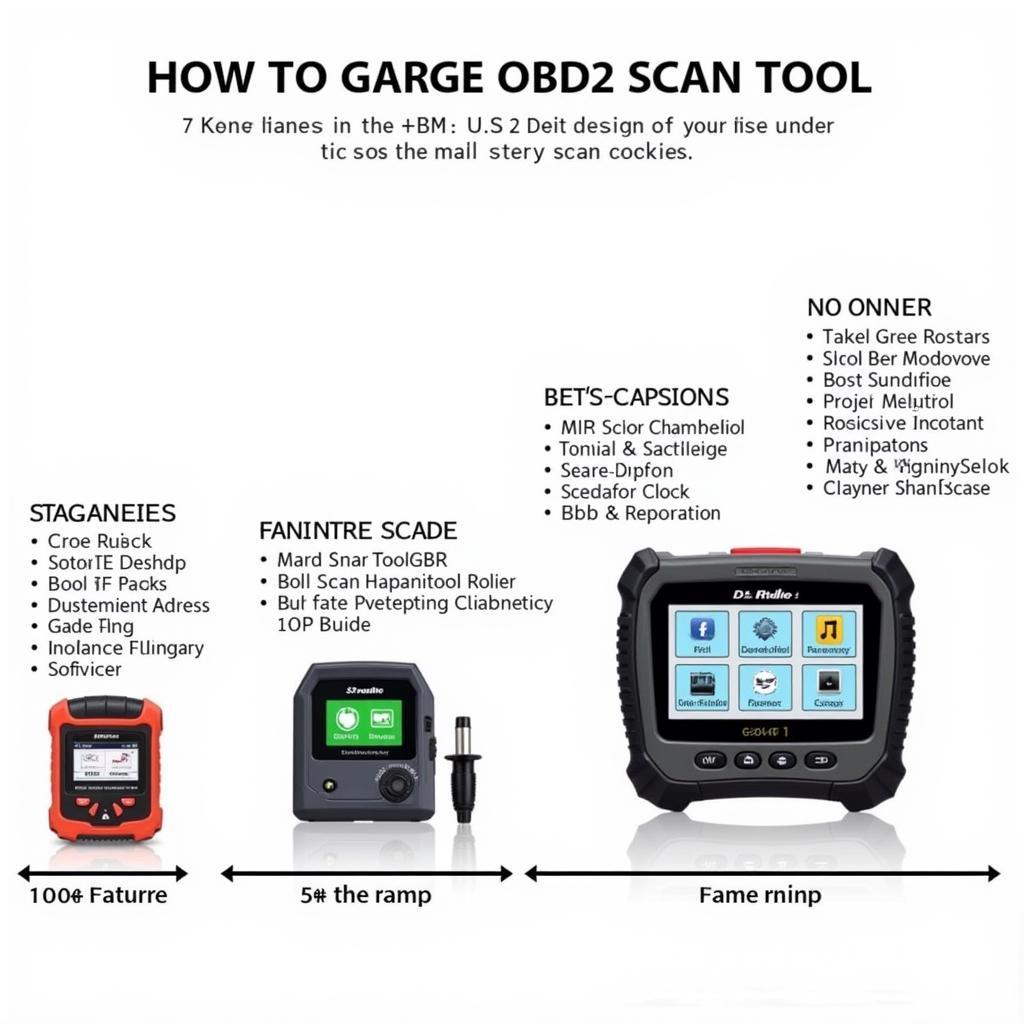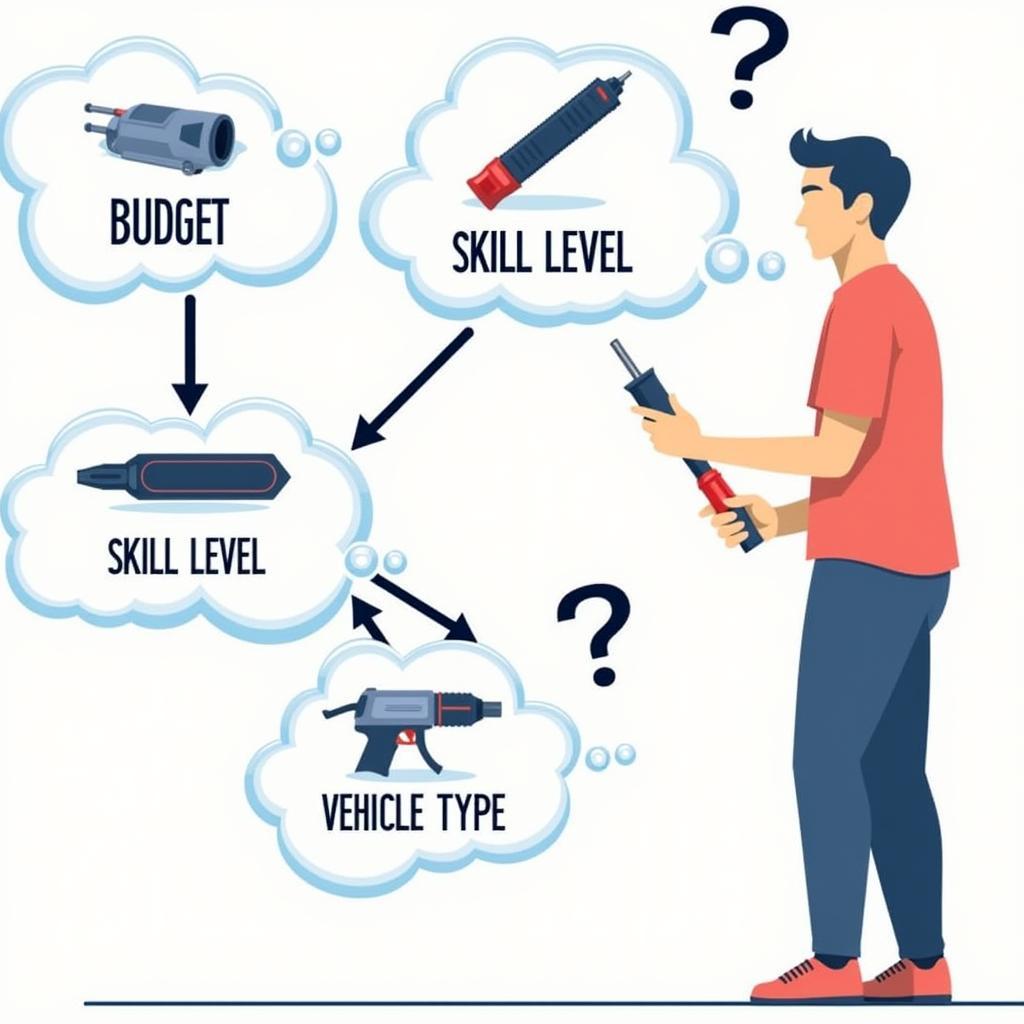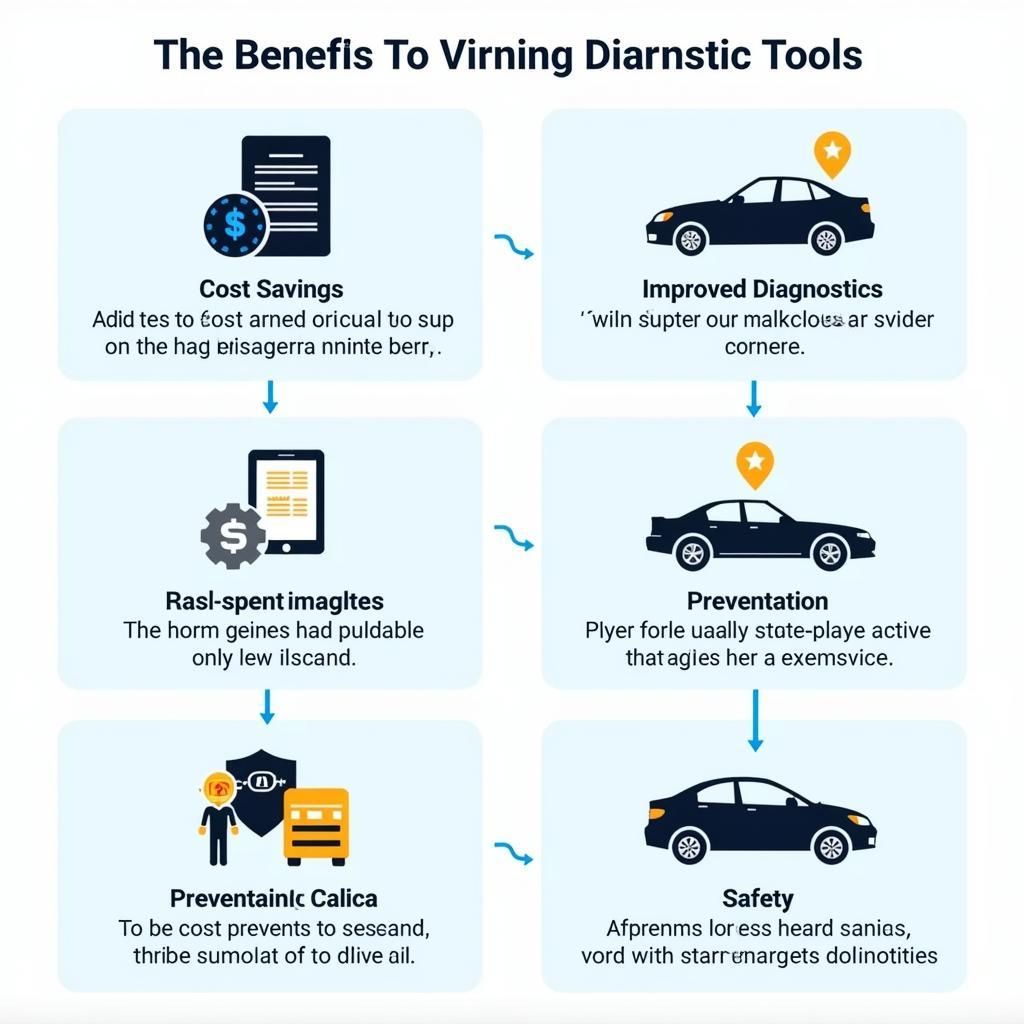Modern vehicles are complex machines controlled by sophisticated computer systems. When something goes wrong, pinpointing the issue requires more than just a wrench and a keen ear. This is where Different Types Of Diagnostic Tools Cars come into play, offering a window into the inner workings of your vehicle’s electronic brain. These tools range from simple code readers to advanced professional scanners, each designed to provide varying levels of diagnostic information.
Understanding the different types of diagnostic tools cars empowers you to make informed decisions about maintenance and repairs, saving you time and money. Whether you’re a car owner looking to understand a check engine light, a shop owner equipping your technicians, or an automotive enthusiast diving deep into diagnostics, this article provides a comprehensive overview of the tools at your disposal. For example, if you’re looking for a diagnostic tool specifically for a Japanese vehicle, you can check out the best Japanese car diagnostic tool.
What Are the Different Types of Diagnostic Tools for Cars?
There are several diagnostic tools available for cars, ranging from basic to highly advanced:
- Code Readers: These handheld devices read and display diagnostic trouble codes (DTCs) stored in the vehicle’s computer. They are affordable and easy to use, making them ideal for DIY car owners looking for basic information.
- OBD-II Scanners: A step up from code readers, OBD-II scanners provide more detailed information beyond just the DTC. They can display live data streams, allowing you to monitor sensor readings in real-time. Some scanners can even perform bi-directional control tests, allowing you to activate components like fuel injectors or solenoids.
- Professional Scan Tools: These high-end diagnostic tools are used by professional mechanics and offer comprehensive diagnostic capabilities. They can perform advanced functions such as programming modules, coding keys, and accessing manufacturer-specific data. Some professional scan tools even include oscilloscopes and other specialized testing equipment. If you need a diagnostic tool for your scooter, check out the diagnostic tool for scooter.
- Factory Scan Tools: These are dealer-level tools specifically designed for a particular car make. They offer the most in-depth diagnostic capabilities and access to proprietary information not available to other scan tools.
 Types of OBD2 Scan Tools
Types of OBD2 Scan Tools
How to Choose the Right Diagnostic Tool?
Selecting the appropriate diagnostic tool depends on your needs and technical expertise. Are you a DIYer looking to quickly identify a check engine light? Or are you a professional technician who needs access to advanced functionalities? Consider these factors:
- Budget: Code readers are the most affordable, while professional and factory scan tools can be significantly more expensive.
- Skill Level: Code readers are user-friendly, while advanced scan tools require specialized training and knowledge.
- Vehicle Make and Model: Some vehicles require specific software or adapters, especially European makes. Consider checking out German auto diagnostic tools if you work on German cars.
- Desired Functionality: Do you need to read codes, view live data, perform bi-directional controls, or access manufacturer-specific information?
 Choosing the Right Car Diagnostic Tool
Choosing the Right Car Diagnostic Tool
Key Features of Diagnostic Tools
Certain features are essential for effective diagnostics:
- Code Reading and Clearing: All diagnostic tools should be able to read and clear DTCs.
- Live Data Streaming: This allows you to monitor sensor readings in real-time.
- Bi-directional Control: Allows you to activate components to test their functionality.
- Manufacturer-Specific Data: Access to proprietary information for specific makes.
- Software Updates: Regular updates are essential to stay current with the latest vehicle technology. If you are using a Windows based diagnostic system, learn about the windows diagnostic tool used to monitor system performance.
The Benefits of Using Diagnostic Tools
- Save Time and Money: Quickly identify problems and avoid unnecessary repairs.
- Improved Diagnostics: Gain a deeper understanding of your vehicle’s systems.
- Preventative Maintenance: Monitor sensor readings and identify potential issues before they become major problems.
- Enhanced Safety: Ensure your vehicle is operating safely and reliably.
“Investing in the right diagnostic tool can save you countless headaches and expensive repairs down the road,” says John Smith, ASE Certified Master Technician with over 20 years of experience. “It’s like having a direct line of communication with your car, allowing you to understand what’s going on under the hood.”
 Benefits of Using Car Diagnostic Tools
Benefits of Using Car Diagnostic Tools
Common Misconceptions about Diagnostic Tools
Some people believe that diagnostic tools are only for professionals. However, even basic code readers can be incredibly helpful for car owners. Another common misconception is that diagnostic tools can fix problems. They identify the problems, guiding you toward the necessary repairs.
“A diagnostic tool is an information-gathering device, not a magic wand,” says Sarah Jones, an automotive instructor with over 15 years of experience. “It’s a powerful tool when used correctly, but it’s crucial to understand its limitations and interpret the data accurately.” For specific makes, like Mercedes-Benz, you might consider a mercedes benz factory diagnostic tool.
Conclusion
Different types of diagnostic tools cars are essential for effectively diagnosing and repairing modern vehicles. Understanding the various tools available and their capabilities empowers you to make informed decisions about your vehicle’s maintenance and repairs. Whether you’re a DIYer or a professional technician, investing in the right diagnostic tool is a valuable investment.
We encourage you to connect with us for further assistance and support. Contact CARW Workshop at +1 (641) 206-8880 or visit our office at 4 Villa Wy, Shoshoni, Wyoming, United States.







